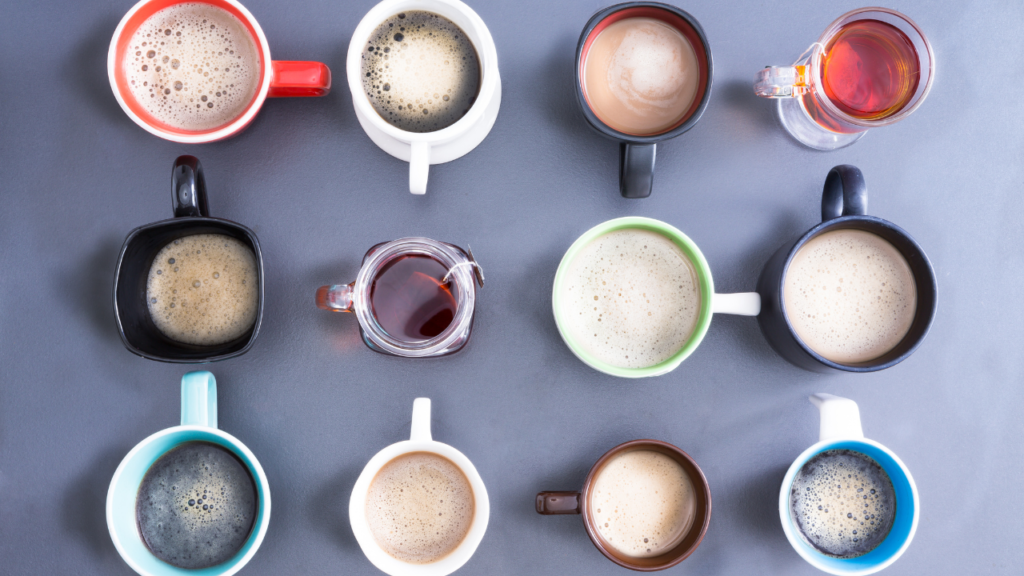I quit caffeine. I know; what the eff is wrong with me? Not to worry, I have also asked myself this question several times over the last couple of weeks.
I remember the first time I felt the glorious pick me up from caffeine. It was many moons ago – I wanna say when I was like 17-18 years old. I was working at Costco as a night merchandiser or a fancy way of saying I was a stock boy.
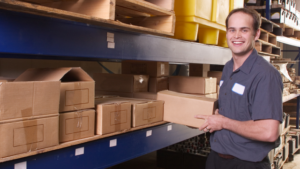 It was actually a pretty cool gig. Just moved pallets around, herded people like cattle to bring the forklift out, tried not to run over people with a pallet jack, and the FREE samples all day. We could score the freshest samples and time them just before they went out. If the sample ladies liked you, they saved a bunch of samples for you after their shift. Needless to say, life was good.
It was actually a pretty cool gig. Just moved pallets around, herded people like cattle to bring the forklift out, tried not to run over people with a pallet jack, and the FREE samples all day. We could score the freshest samples and time them just before they went out. If the sample ladies liked you, they saved a bunch of samples for you after their shift. Needless to say, life was good.
Anyways what does my job at Costco have to do with my caffeine dependence? Well, on one fateful late-night merchandising shift, I happened to be tired and working in the cooler. Which was cold and unpleasant, but there happened to be a number of energy drinks that were to be disposed of due to the packing being damaged. In a moment of weakness, I decided to try one. The rest was history.
The focus and energy I had for the rest of that shift were incredible. I felt amazing; no more tiredness, just a feeling of badassery and wanting to conquer the world. I was invincible! From that point forward became an endless quest, continually chasing the high that could never be replicated. Sometimes we got close, but it was never quite the same.
OK, I will try to be a little less dramatic.
I spent the next 10-12 years of my life dependent on caffeine, especially during University. Being addicted to ‘coffee’ was part of fitting in and maybe being cool. I tried coffee, tea, energy drinks, pre-workouts, caffeine tabs, and chocolate-covered coffee beans. FYI chocolate-covered coffee beans are F*CKING amazing. Talk about overloading your reward centre not only with caffeine but chocolate as well. Some sadistic or brilliant individual woke up one day and changed the world with this idea. The more I write, the more I am beginning to feel I had more of a problem than I thought. So much for not being dramatic.
I digress. Let’s get to the meat of the matter.
What does caffeine actually do in our bodies?
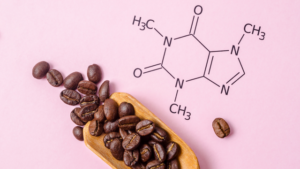 There is this interesting molecule called adenosine. Now I apologize as I am going to make you reach way back to grade 10 biology. Do you remember the bean-shaped organ that your teacher said was the ‘powerhouse of the cell’? Or your mitochondria? Ya, I bet you remember that useless fact. Funny how that was drilled into us instead of, you know, being able to do your taxes or learning financial responsibility? We won’t open that political can of worms, though.
There is this interesting molecule called adenosine. Now I apologize as I am going to make you reach way back to grade 10 biology. Do you remember the bean-shaped organ that your teacher said was the ‘powerhouse of the cell’? Or your mitochondria? Ya, I bet you remember that useless fact. Funny how that was drilled into us instead of, you know, being able to do your taxes or learning financial responsibility? We won’t open that political can of worms, though.
Now back to our mitochondria. In a simplified form, the food we eat provides us with energy via our mitochondria transporting electrons in a chain. Then, add some magic and wishes known as the Kreb’s Cycle (sorry to anyone who has PTSD from trying to memorize this pathway in school) to create Adenosine Triphosphate or ATP. ATP is like gas for our cells – it allows our cells to cell ‘stuff’ and, in the process, is broken down into ADP and Adenosine.
From the time you roll out of bed and until you go to sleep, adenosine is being created and building up in your bloodstream. More fuel burned = more adenosine. It then acts at various receptors throughout your body and says, “Hey body, we are running out of gas. I will make drowsy AF. When you fall asleep, we can replenish our energy stores. Ok? Cool.” Hopefully, like a good human, you then go to sleep. Or, more likely, you then have some caffeine. Sleep is overrated, right?
Anyways, instead of sleep, you have a cup of joe. The caffeine gets to work blocking the receptors that adenosine usually binds to, temporarily preventing you from feeling that sleepiness. Caffeine is also a central nervous system stimulant, so it does increase your alertness as well. Now I want to emphasize temporarily. If you live in a perpetual state of sleep deprivation, eventually there will be enough adenosine buildup in your system that the caffeine will get overrun by an angry mob of adenosine – like people breaking down the doors at Best Buy for Boxing Day deals. At that point, caffeine does nothing in terms of alertness. You probably still have some physiological effects, like your heart feeling as if it will explode or sweating profusely, but you could still fall asleep standing up.
Caffeine, is it good or bad?
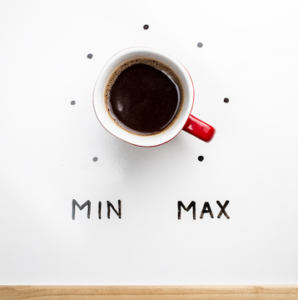 “Awesome, thank you for more handy biology facts, Dr. Dan.” So, is caffeine good or bad then?
“Awesome, thank you for more handy biology facts, Dr. Dan.” So, is caffeine good or bad then?
Well, caffeine has proven benefits in postponing fatigue, increasing cognitive performance, and boosting physical endurance. If you enjoy caffeine from coffee or tea, you might also be getting additional benefits such as reducing your risk of diabetes to certain types of cancers. Neato right? Now I won’t review the weight-loss benefits here as I need to dedicate an entire blog to do it justice, but here’s a hint: They are nothing magical. So stay tuned!
In terms of the bad, caffeine consumed in reasonable amounts (i.e. 3 cups of coffee daily) will not cause harm to an otherwise healthy adult. More the problem lies in our human bias towards ‘more is better.’ Consuming large amounts of caffeine can have potentially harmful effects such as affecting your sleep, increasing your anxiety, and, if you really go big, it can be fatal.
Ok, so if caffeine and coffee are so great, why did I stop? To be 100% honest with you, I had no reason in particular. I simply ran out one morning and decided to stop and see what would happen.
What happens if you quit caffeine?
What if I quit consuming caffeine? What would happen? I had no idea!
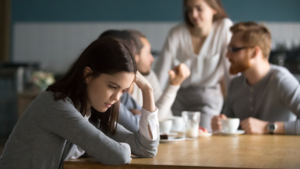 That is not entirely true. I did know a few things would happen, especially going from 3 to 4 cups of coffee per day for the last 12 years to none. First was the ice pick through the eyeball level headache, which lasted for 4 god-awful days. I also knew I would be a miserable human being that simultaneously underwent a frontal lobe lobotomy. My family, friends, and co-workers confirmed this was indeed the case, and I should probably send them some flowers or cookies for having to put up with me.
That is not entirely true. I did know a few things would happen, especially going from 3 to 4 cups of coffee per day for the last 12 years to none. First was the ice pick through the eyeball level headache, which lasted for 4 god-awful days. I also knew I would be a miserable human being that simultaneously underwent a frontal lobe lobotomy. My family, friends, and co-workers confirmed this was indeed the case, and I should probably send them some flowers or cookies for having to put up with me.
However, as I came out on the other side at about day 8 or 9, I began to experience several things that I did not expect. First, I started sleeping better. Not that my time in bed changed, but I felt I went into a deeper slumber which ultimately translated to feeling more rested, and it was much easier to get out of bed – dramatically easier. Secondly, and this was the really neat thing, is my energy levels seemed to increase at least back to where they were, and they became more sustained throughout the day. There was no dip, no slump. My energy was constant over the course of the entire day. Now a caveat to this has been if I do not get at least 7-8 hours of sleep, my energy levels are definitely lower, and man, did I crave coffee – thinking about it occupied a large part of my day. Good news, though, the cravings are lessening!
Final Thoughts
So, am I saying you need to give up coffee and caffeine? No, not at all. I hope you are drinking a cup of coffee while regaling in my dramatic tales of yesteryear. I just wanted to share my experience with you in case decreasing your consumption is something you have considered. I recommend ensuring your sleep schedule is on point first and prepare for a week of hell, but it will get better. Start with a harm reduction approach vs. all or nothing. You will likely be much more successful!
Will I ever consume caffeine again? Probably. Especially those damn chocolate-covered coffee beans. However, I will never consume to the level I was.
Until next time, you beautiful people.

